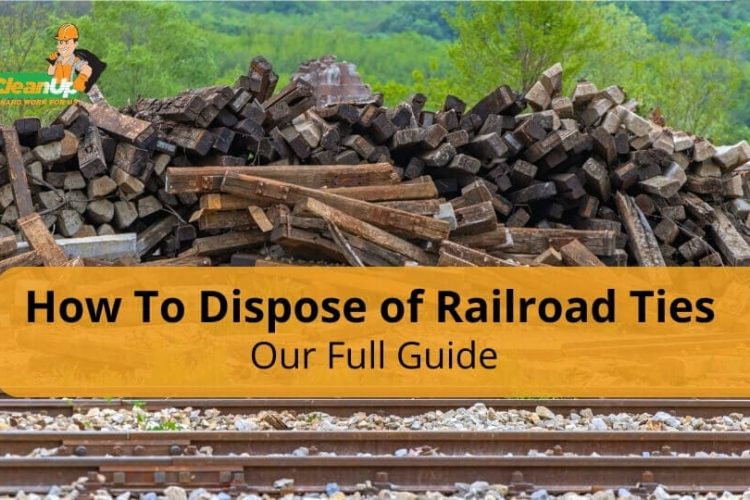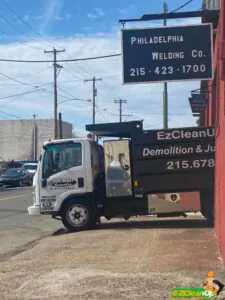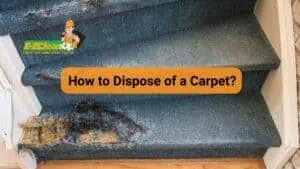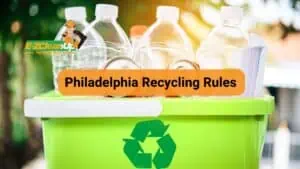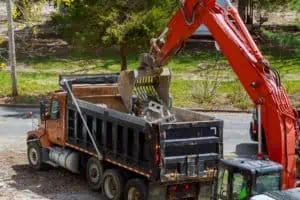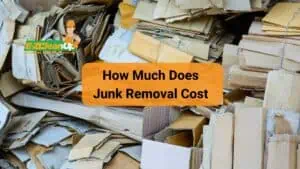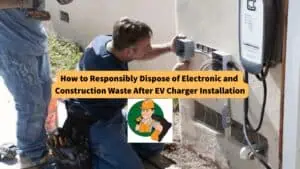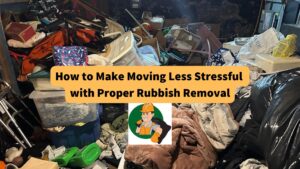Disposing of railroad ties requires caution due to the hazardous chemicals they may contain, like creosote. Proper disposal methods include reusing, donating, selling, or recycling. If these aren’t feasible, consider junk removal services or specific landfills for safe disposal.
Delve deeper into the intricacies of railroad tie disposal, from understanding their dangers to exploring the best disposal practices, in our comprehensive guide below.
The Importance of Proper Disposal of Railroad Ties & Their Associated Dangers 🛤️
Railroad ties, also known as sleepers, have been an integral part of railway systems for decades. While they play a crucial role in ensuring the stability of tracks, their disposal poses significant environmental and health concerns.
🔬 Chemical Treatments & Their Dangers:
- Creosote: 🚫 Historically, the majority of railroad ties were treated with creosote, a tar-like substance, to increase their lifespan. While effective as a preservative, creosote is a potential carcinogen and can leach into the soil, contaminating groundwater and harming aquatic life.
- Chromated Copper Arsenate (CCA): ☠️ Another older treatment method involved using CCA, which contains arsenic, a known toxin. Over time, arsenic can leach from the ties, posing a risk to the environment and human health.
- Modern Treatments: 🌱 While newer railroad ties might use less toxic treatments, they can still contain chemicals that are harmful if released into the environment. Some modern ties use borate-based treatments or copper-based solutions, which, while less toxic than creosote or CCA, still require careful handling and disposal.
- 🔥 Burning Concerns: Igniting railroad ties releases toxic fumes, which can be harmful when inhaled and contribute to air pollution.
Given these concerns, it’s evident that railroad ties should not be treated as ordinary waste. Proper disposal or repurposing is essential to prevent environmental contamination and protect public health.
Whether you’re a homeowner with a few ties in your garden or a business with a significant number, understanding the dangers and ensuring responsible disposal is paramount.
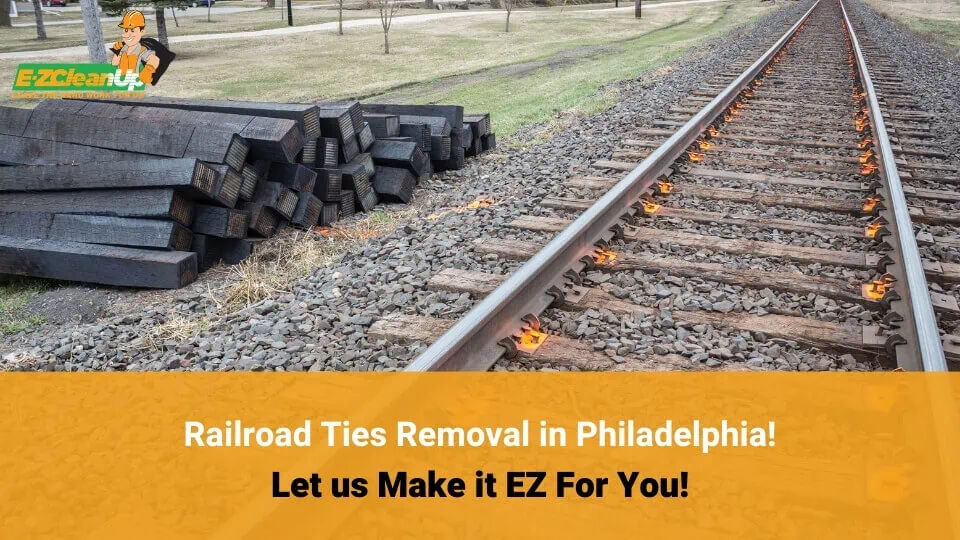
Let’s Start with What Not to Do with Your Old Railroad Ties 🚫
The U.S. EPA has provided specific guidelines for homeowners to ensure safe handling of these creosote-treated materials:
🔥 Burning Concerns:
- DO NOT burn creosote-treated wood in open fires, stoves, fireplaces, or residential boilers. This can release toxic chemicals in the smoke and ashes.
🤲 Handling Precautions:
- DO avoid frequent or prolonged skin contact with creosote-treated wood.
- DO wear long-sleeve shirts, long pants, and gloves resistant to chemicals when handling the wood.
- DO wear goggles for eye protection if power-sawing the treated wood.
- DO wash work clothes that come into contact with the treated wood separately from other household clothing.
The Best Ways to Dispose of Railroad Ties 🌱
- Reuse 🔄: Railroad ties can be repurposed for various projects, like retaining walls or parking lot bumpers.
Inspiration? You got it!
- Give to Friends 🎁: If in good condition, consider offering them to someone who might find them useful.
- Donate ❤️: Organizations like Habitat for Humanity might utilize old railroad ties for specific projects.
- Sell 💰: There’s a market for used railroad ties, especially if they’re in good condition.
- Recycle ♻️: Some facilities accept railroad ties for recycling, ensuring they’re processed responsibly.
- Call a Junk Removal Company 🚛: For hassle-free disposal, professional services (like us) can handle the task efficiently.
- Throw 🗑️: If all other options aren’t feasible, these woods should be disposed of in a special landfill, adhering to the city’s regulations.
The key is to prioritize methods that are both safe for you and environmentally responsible.
Get Help from Professionals 🚛
Dealing with hefty railroad ties can be a cumbersome task. Their weight, size, and potential chemical treatments make disposal a challenge for most homeowners. This is where professional junk removal companies, like EZ Cleanup, come into play. Our team is equipped with the right tools and expertise to handle railroad tie disposal efficiently and safely. We prioritize eco-friendly methods, ensuring that these ties don’t harm the environment. Plus, with our hassle-free service, you won’t have to lift a finger.
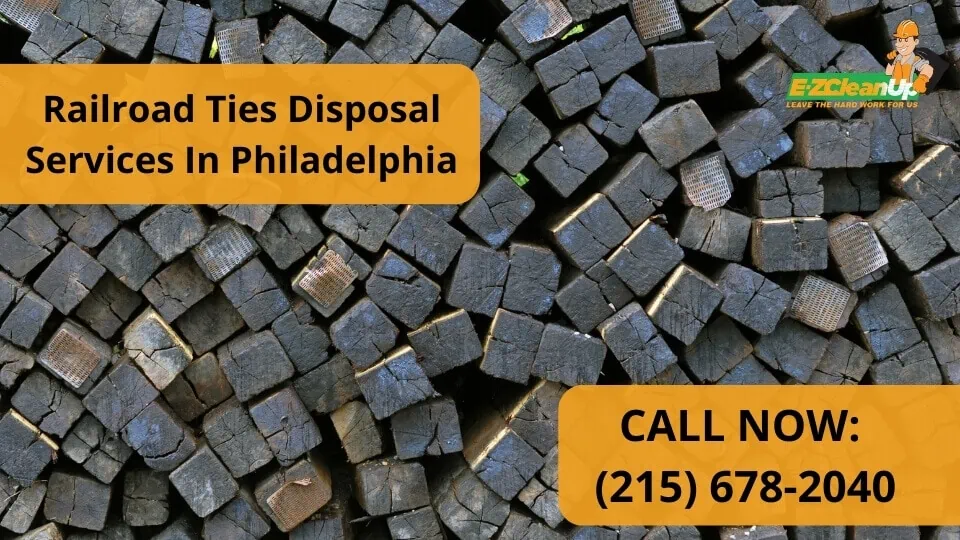
Bottom Line
Railroad ties, with their historical significance and robust build, pose unique challenges when it comes to disposal. Their potential environmental and health hazards make it imperative to approach their disposal with caution and knowledge.
Whether you’re repurposing, recycling, or seeking professional assistance, the key is to ensure safety and environmental responsibility.
By making informed choices, not only do you protect your surroundings, but you also contribute to a sustainable future. Remember, every step taken towards responsible disposal is a step towards a greener planet. Embrace the journey with care, knowledge, and the assurance that you’re making the right choices for the world around you.
And If you ever need help with the job – Choose EZ Cleanup for a swift, responsible, and stress-free railroad tie disposal. Contact us today!

